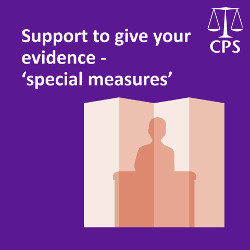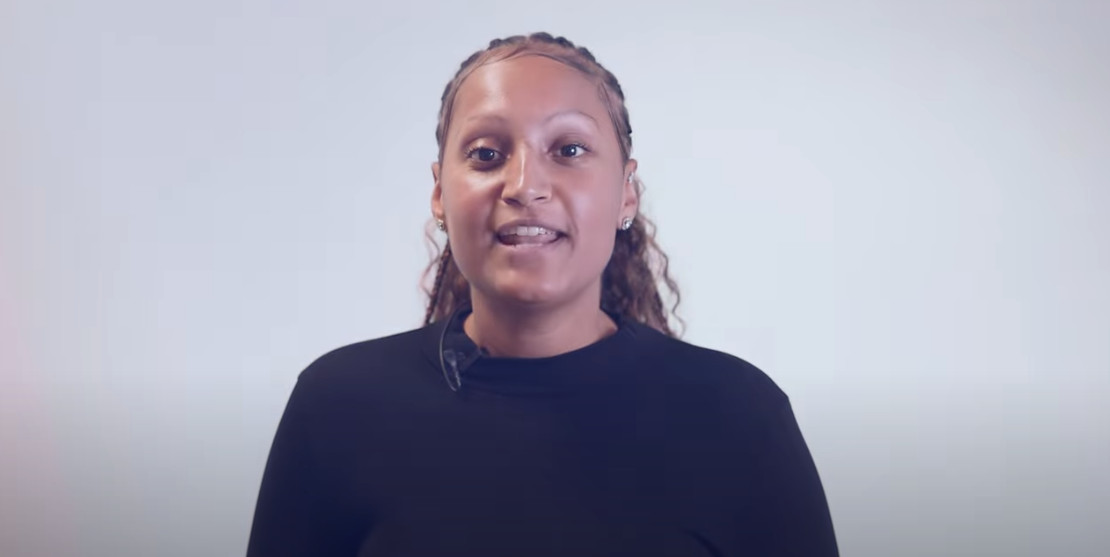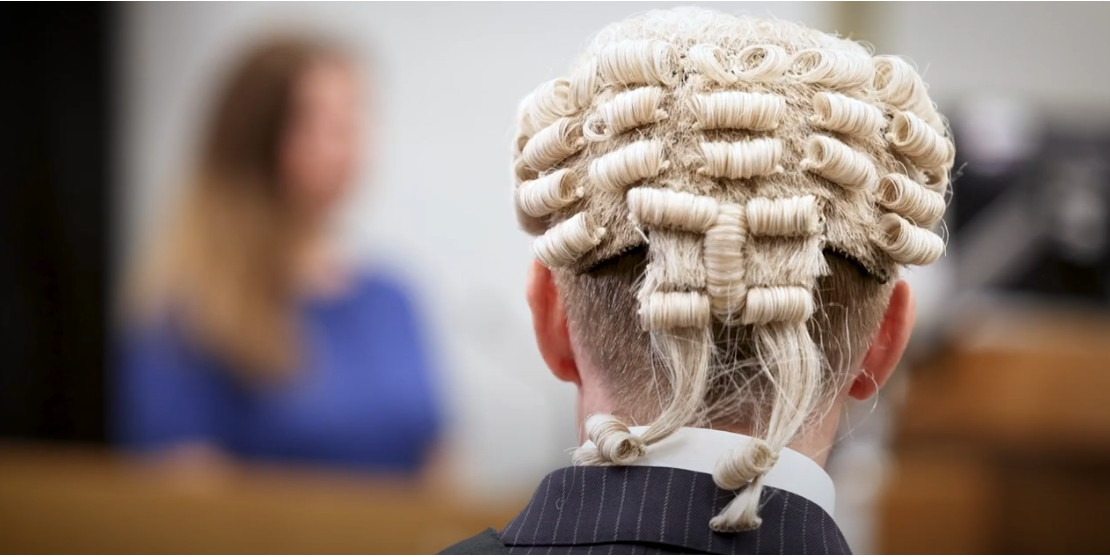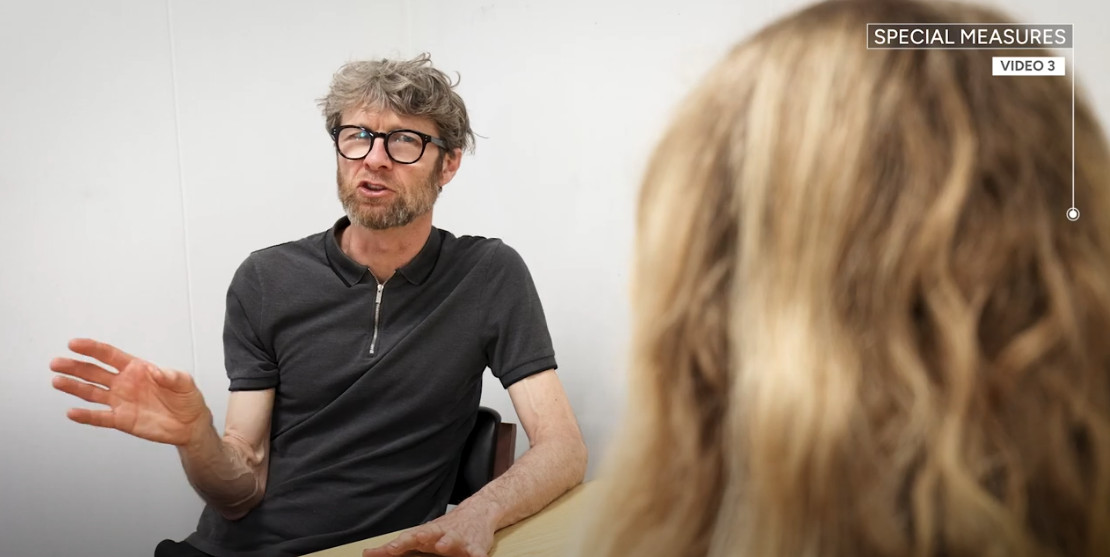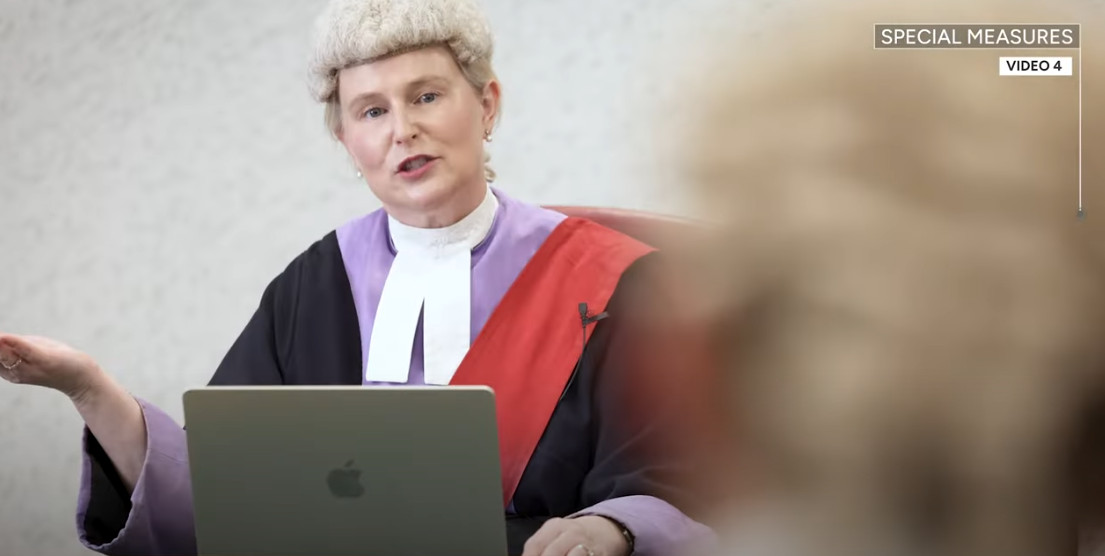Video two looks at the special measures that change how, when or where you give your evidence, so that in all of them you give your evidence away from the main court room.
There are three measures covered in video two:
- giving evidence by live link,
- video recorded evidence in chief and
- pre-recorded cross examination (only available in Crown Court cases).
Usually, giving evidence means the victim, or witness, would go into the courtroom on the day of trial.
They stand in a witness box and tell the court what happened- we call that giving evidence in chief.
Then they are asked questions by the defence and prosecution lawyers- we call that cross-examination and re-examination.
The defendant can see them, and they can see the defendant. There might be people (like journalists, members of the public, or friends and family) watching.
Evidence by live link
Giving evidence by live link changes where you give your evidence from, so you can tell the court what happened and answer the lawyers’ questions from another room, away from the main court.
This is usually a television link from a private room within the main court building. Sometimes you can give evidence from another location such as a different courthouse closer to your home, a specially designed room in a police station, or a centre that provides support to victims.
If you give evidence via live link, you will be able to see whoever is asking you the questions (the lawyer or the judge) but you usually won’t be able to see anyone else in the courtroom.
However, everyone in the courtroom will be able to see you, including the defendant.
We can apply for screens together with the live link to prevent the defendant from seeing you, if you would find that helpful.
Anyone who’s legally ‘vulnerable or intimidated’ can ask to use live link.
Video recorded evidence-in-chief
Video recorded evidence in chief changes how you give your main evidence to the court.
Instead of coming into the court room and telling the court what happened, your witness statement is video recorded by the police before the trial. It is played back to the court during trial so that you don’t need to repeat all the details of the offence in court.
After your video recorded evidence-in-chief is played to the court, you will still be asked additional questions by the prosecution lawyer, to clarify any issues and be cross-examined (asked questions about your evidence) by the defence lawyer during the trial.
Sometimes you might hear people call this a ‘VRI’ which stands for ‘Video Recorded Interview’ or an ‘ABE’ which stands for ‘Achieving Best Evidence’ interview.
Anyone who’s legally ‘vulnerable or intimidated’ can ask to video record their evidence.
Video recorded cross-examination or re-examination
This special measure is only available if your case is in a Crown Court.
If a video recorded interview is being played to the court as your main evidence, we can also ask the judge if we can video record your cross examination, and re-examination, before the main trial takes place.
‘Cross-examination’ is when the defendant’s lawyer asks you questions about your account of what happened. ‘Re-examination’ is what we call any final follow up questions that the prosecution lawyer asks you.
With this special measure, instead of you answering the lawyer’s questions during the main trial, you go to another, shorter court hearing. You answer the lawyers’ questions through a live link, either from a different room in the court or sometimes a different building altogether.
The judge, lawyers, and defendant are there, but usually not in the same room as you. And there’s no jury.
This shorter court hearing is filmed. During the main trial, the court will first watch your video-recorded interview as your main evidence and then they’ll watch the video of your cross-examination.
That means you might not have to attend the main trial at all because your video-recorded evidence-in-chief and cross-examination will be played to the court instead.
This special measure is sometimes called “section 28”, because of the bit of law it comes from.
You can read more about cross-examination and re-examination in the Victims’ Guide section, The Trial, under ‘What you will be asked.’
Video recorded cross-examination is available to all legally vulnerable victims and witnesses.
It is also available to victims of rape or sexual assault and modern slavery
